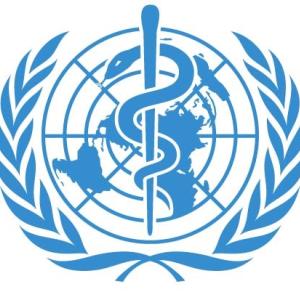WHO and USAID organized a Partners meeting to present achievements
19 sentýabr 2023
On 14 September 2023, the World Health Organization (WHO) and the United States Agency for International Development (USAID) organized a Partners meeting to present achievements and discuss the way forward after completion of the WHO-USAID Project “Ending Drug-resistant Tuberculosis in Central Asia” implemented in Kazakhstan, Tajikistan, Turkmenistan and Uzbekistan during 2019-2023.
Tuberculosis (TB) and drug-resistant TB (DR-TB) still poses significant public health threat to many countries in the WHO European Region, specifically in Central Asia comprising Kazakhstan, Kyrgyzstan, Tajikistan, Turkmenistan and Uzbekistan, with more than 34,000 TB and 8,000 patients with DR-TB notified annually. New TB action plan for the WHO European Region recently endorsed by Member States of the Region is setting up ambitious milestones by 2025 and targets in decreasing the burden of TB and DR-TB in the Region by 2030.
Through implementation of the Project, WHO provided comprehensive technical assistance to Ministries of Health of Kazakhstan, Tajikistan, Turkmenistan and Uzbekistan in aligning national policies and regulations on TB in accordance with the latest WHO recommendations on TB prevention, diagnosis, treatment and people-centered care, invested in building national capacity on programmatic management of DR-TB and research, contributed to implementation of regional operational research initiatives on DR-TB at country level, and facilitated introduction of innovations and scale up of digital adherence solutions for TB and DR-TB.
With universal access to health care, almost everyone who develops TB in Central Asia can be successfully treated and preventive treatment can be offered to those most at risk. Multisectoral action is needed to eliminate the economic distress, vulnerability, marginalization, stigma and discrimination often faced by those affected by TB. Such cooperation would effectively drive down the number of people developing TB infection and disease by addressing social determinants such as poverty, undernutrition, the prevalence of HIV infection, diabetes, mental health and smoking. Programmatic breakthroughs, such as TB preventive treatment for TB infection and shorter regimens for DR-TB, are needed to rapidly reduce the burden of disease in Central Asia to exceed the levels already achieved and significantly reduce the reservoir of infection. Building on commitments, Ministries of Health of Central Asian countries have a unique opportunity to address the impact of the COVID-19 pandemic on national responses to TB and DR-TB, and rapidly accelerate progress towards the goals and targets set up by the TB action plan for the WHO European Region 2023-2030. Responding raising countries’ demand, WHO and USAID will continue providing tailored country support to Central Asian countries tackle and eliminate TB and DR-TB in the Region.




